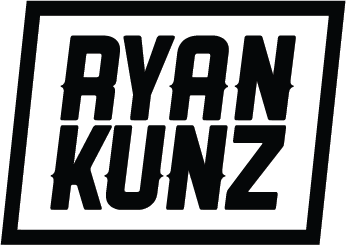Originally published December 15, 2017.
Alert: Incoming spoilers. Like, your cruisers can't repel spoilers of this magnitude. Shields up!
I walked out of The Last Jedi thinking, This movie is going to be polarizing. I came home and checked Twitter, which only confirmed that suspicion. There were plenty of people saying Last was the best Star Wars movie they’d ever seen, but there were also plenty of people expressing their frustration or disappointment.
Which am I?
I loved it. Mostly.
A few flaws aside, director Rian Johnson has boldly gone where no Star Wars has gone before, to use a line that I totally made up myself for this occasion and obviously didn't steal from a less exciting sci-fi franchise. Does it falter a little along the way? Yes. Is the ride still thrilling? Of course.
So let’s talk about how the movie works best: as a brilliant subversion of The Empire Strikes Back. Remember when The Force Awakens came out and the primary criticism was that it followed the story beats of A New Hope a bit too closely? Last plays with the expectations that it would do the same with Empire. You go in thinking it’s going to go a certain way, but as a rain-sodden Luke says halfway through the movie, “This is not going to go the way you think.”
Prime example: the scene with Kylo Ren and Rey in Snoke’s throne chamber after that awesome part where they dispatched Snoke’s elite guards. Kylo reaches out to Rey, quickly establishing the parallels between this scene and the famous “I am your father” scene from Empire.
“Join me,” Kylo says. He beckons to Rey, offering to tell her the truth of her parentage. What’s he about to say? Maybe “I am your brother”? “I am your cousin”? After years of speculating on Rey’s parentage, we’re about to get a dramatic revelation.
Her parents were nobodies.
Wait, what?
I can see why some people would be underwhelmed, or feel the revelation is anticlimactic if you spent two years really wanting her to be the child of Han and Leia or Luke or Obi-Wan, but it’s brilliant, because it subverts your expectations and throws away the cliché that you have to be related to someone to be significant. Star Wars invented—or at least popularized—that cliché in 1980, but these days you can’t do it anymore without it feeling totally rote. So The Last Jedi dispensed with it, and it did so brilliantly.
But wait! Star Wars is all about the Skywalker family, so Rey should be a Skywalker. Well, maybe. But the franchise is also about the Skywalker legacy. The end of the movie established that the future is all about the legend of the Luke Skywalker and the legacy he left behind. Rey may not be a Skywalker by blood, but she’s the heir to the Jedi and everything inherent in the Skywalker name. I’m sure some people will still harbor a desperate need for Rey to be related to somebody—anybody!—but that’s a theme that The Last Jedi conveys brilliantly: that you don’t need to be from some magical dynastic space lineage to make a difference.
That’s not the end of the subversion of expectations. Rey ventures into a mysterious nexus of dark side energy, just like Luke did in the tree-cave on Dagobah in Empire, and we think she'll learn some mystic truth about her parentage. But guess what—instead she receives the seeds of a harder truth: that her path lies forward, not backward, and she needs to let go of her need for answers about her past (much like many fans, I imagine).
It goes on from there. The good guys don’t blow up the giant laser at the end. Vice Admiral Holdo, initially presented as a bureaucratic impediment to hotshot Poe Dameron, goes out with the audience rooting for her. (Man, that part was cool.) Benicio Del Toro’s shifty character shows he's just in it for the money and leaves, just like Han Solo, but he doesn’t have a change or heart and come back just in time to save the day. There was so much subversion going on that I was kinda expecting the Resistance to break out the tow cables and grappling hooks at the end to try to take down the First Order walkers, only to have that fail miserably.
I understand why some people might not like the departure from the norm. There are certain conventions that come with a Star Wars movie, and you might be understandably upset if the movie doesn’t deliver those things. (Remember the freakout when Rogue One eschewed the opening crawl?) The gray area between retreading old steps and striking out into uncomfortably new territory is not very wide, but I’d rather err on the side of innovation.
And killing off Snoke? Bold and exciting. He was always less compelling of a character than Kylo Ren to me (basically, he's just an Emperor wannabe in a fabulous gold bathrobe), so killing him to further Kylo’s storyline works for me. I’m sure people will be disappointed that the movie didn’t reveal that he was Darth Plagueis in disguise (this was always a terrible theory and you're silly if you believed it) or Grand Admiral Thrawn after a really bad plastic surgery job or just a bunch of porgs stacked up in a trenchcoat. But answers are often not as interesting as the mystery itself, and I’m sure the canon will reveal his backstory someday. In the meantime, I look forward to hearing more people’s ridiculous Snoke theories.
The plot wasn’t the only area where The Last Jedi tried something new. It also introduced storytelling elements you don’t see in the other Star Wars films: off-camera narration (with Rey in the cave), Rashflashbacks (the same scene in Luke’s old Jedi temple told three times, each slightly differently in a Rashomon style), slow- and fast-motion shots, and an epilogue not featuring any of the main characters.
People were annoyed that The Force Awakens played it safe, giving us a well-crafted story that we’d nevertheless seen before. Now The Last Jedi shies away from franchise conventions, and some people still aren’t happy. There’s just no pleasing everyone.
There were other things I really liked as well. Several scenes had me cheering in my seat. Kylo Ren kills Snoke via telekinetic bisection, then teams up with Rey to fight Snoke’s guards! Vice Admiral Holdo jumps a whole freaking cruiser through a Star Destroyer! Luke drops the mic when it’s revealed he’s been on the island all along! The movie gave us a lot of visually striking imagery—like the last bomber disappearing into the fiery conflagration of the First Order dreadnaught, the dramatic crimson flares of the Resistance craft as they streak toward the attacking walkers, and Luke's final sunset. The opening battle was thrilling and funny (despite the fact that everyone involved was kinda incompetent, I'll admit), and John Williams’ score delivered. (Everyone, please pray that 85-year-old Williams survives to score the last movie in the trilogy, at least.)
That’s not to say the movie was perfect. It has its share of flaws. Some of them may have been the director’s fault, and some of them are probably the results of the iron will and rapacious greed of the evil Empire Disney. They are, in no particular order:
The biggest issue, for me: the movie was the victim of a bit of unfortunate Disneyfication, the omnipotent studio's consistent attempts to pander to kids, no matter what the property. Because of this, the movie's tone was inconsistent at times, with a few too many prequel-era goofy CGI aliens providing comic relief. Disney probably told the director he’d end up with a cinderblock tied around his neck and be left to drown in Splash Mountain unless he threw in something for the kiddos.
BB-8’s exaggerated competence is a little ridiculous at times, as though Disney said, “Hey, can you make BB-8 a freakin’ ninja so we can sell more BB-8 toys?”
And porgs? Disney, stop trying to merchandising happen. I'd like my porgs in smaller doses, please.
The Canto Bight detour was simultaneously too rushed to flesh out the themes it was trying to explore and too long to mesh well with the rest of the movie, though the space horse chase on Canto Bight felt very much like something from the peak Spielberg years, suffused with childlike wonder and giddy joy. So it had its moments.
The whole Finn/Rose storyline ends up being mostly inconsequential. (Cynical right-wingers will even probably dismiss Rose’s inclusion as a forced concession to political correctness, which is unfortunate. She’s a nice character, if a little uninteresting so far.)
Phasma dies doing what she loved: being an underutilized character.
Interesting, having Benicio Del Toro’s character stutter. I thought that was pretty cool, till he betrayed his new friends. Not cool. #NotAllStutterers
There’s no scene where Darth Vader slices through a hallway full of terrified Rebels. Every movie should have at least one, because HOLY CRAP THAT WAS COOL. Remember that?
That seems like a lot, but I'm mostly being really nitpicky. So it has its flaws, and I'd cut off a hand (maybe not mine) for the chance to get in front of a Disney conference room and tell the execs to give the fans what we really want, not what's going to sell the most toys. But in the end, when Luke Skywalker arrived, reunited with his sister to the touching strains of "Luke and Leia" from the Return of the Jedi soundtrack, fought the First Order like a boss, and then become one with the Force while the ghostly twin suns of Tatooine welcomed the hero to his rest at last, the good outweighed the bad. Luke's Hero's Journey, begun while gazing into the twin sunset 40 years ago, came full circle.
That's Star Wars for me—a franchise I fell in love with as a good so hard that I've put up with even through its rough patches. If I could stick with it during the prequel era, the movies where Anakin Skywalker used his hatred of sand as a pickup line and went from a good guy to a child-killer psycho in about ten minutes, I can certainly put up with and even continue to enjoy this new era, warts and all.
Read my further defense of the movie here.


